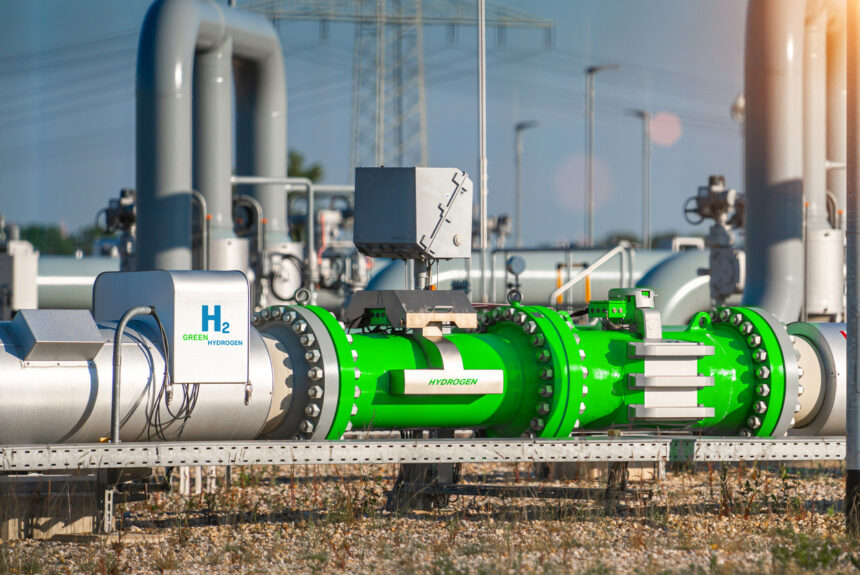This article originally appeared in the Cleveland Plain Dealer.
Lawmakers are showing they can make bipartisan agreements on foreign policy. Now, they should turn to an important bipartisan domestic issue.
Heralded as the biggest piece of climate change legislation in history, the Inflation Reduction Act signed into law nearly two years ago included a wave of tax subsidies for clean energy. But it’s what Congress and President Biden didn’t do in 2022 that will crush innovative energy startups.
>>>READ: Three Ways Immediate Expensing Helps the Environment
For roughly 70 years, businesses could fully and immediately deduct expenses in research and development. Under IRS Section 174, the provision allowed deductions for everything from investments in new equipment to scientists and entrepreneurs. As part of the Tax Cuts and Jobs Act of 2017, companies must capitalize and amortize those expenses over a five-year period beginning in 2022. Cumbersome depreciation schedules create opportunities for tax accountants but serve as a tax hike for American companies – one that disproportionately penalizes small businesses and startups.
If Congress fails to restore immediate expensing, it will curtail innovation, diminish American economic competitiveness, and make it more challenging to meet our growing energy needs and environmental ambitions. The projected reduction in R&D spending threatens to end America’s leadership in emerging technologies and provide a pathway for economic competitors such as China to surpass America in critical industries such as semiconductors, clean energy, advanced materials, and more.
Several of the job losses would be at Petra Power in Northeast Ohio. A manufacturer of solid oxide fuel cells, Petra Power’s novel technology converts fossil fuels to electricity with up to 90 percent greater efficiency than comparable combustion engines in a package that is significantly smaller and lighter. It hopes to be able to offer high-paying, long-lasting manufacturing jobs. Its technology can also use hydrogen and other clean fuels to produce electricity. This technology is an ideal candidate to cost competitively reduce emissions now while contributing to future deployment of clean fuels such as hydrogen.
>>>READ: Immediate Expensing Will Kickstart Innovation
Petra Power has been working on a federal project to develop its technology for the Defense Department. Yet it also has dealings with another federal bureau: the IRS. With the conclusion of the 2023 tax season, Petra Power faces significant costs in amortizing R&D expenses over five years. This creates a very large taxable income base when, in reality, Petra Power has no taxable income. Without immediate action the impacts of IRS Section 174 could threaten to nullify the efforts of Petra Power, the investments of the DoD, and the hard work of many state and regional economic development agencies in Northeast Ohio by creating an untenable tax burden on Petra Power that does not reflect the true income of the business.
This case is not unique. These changes in IRS guidance threaten to eradicate most research and development activities undertaken within the United States. Some larger companies may be able to withstand the tax burden imposed by Section 174. However for all small- and medium-sized business this guidance creates an environment that at a minimum strongly disincentivizes R&D and at most makes R&D work completely impossible.
If the United States wants to maintain its status as a world-leader in scientific discovery, innovation, and technological progress, Congress and the Biden administration must restore immediate expensing for R&D investments. As it stands, the U.S. is now only one of two developed countries in the world to require amortization of R&D expenses. Meanwhile China’s tax policy provides a super deduction, allowing a company to immediately deduct twice its R&D spending.
Congress and the Biden administration should make immediate expensing a permanent fixture of the tax code. Such permanence signals a commitment to fostering a culture of innovation that empowers businesses like Petra Power to invest in transformative technologies for a more prosperous and cleaner future.
Nick Loris is the Vice President of Policy for C3 Solutions and Dr. Aaron Goodman is the Co-founder and CEO of Petra Power, LLC
The views and opinions expressed are those of the author’s and do not necessarily reflect the official policy or position of C3.
